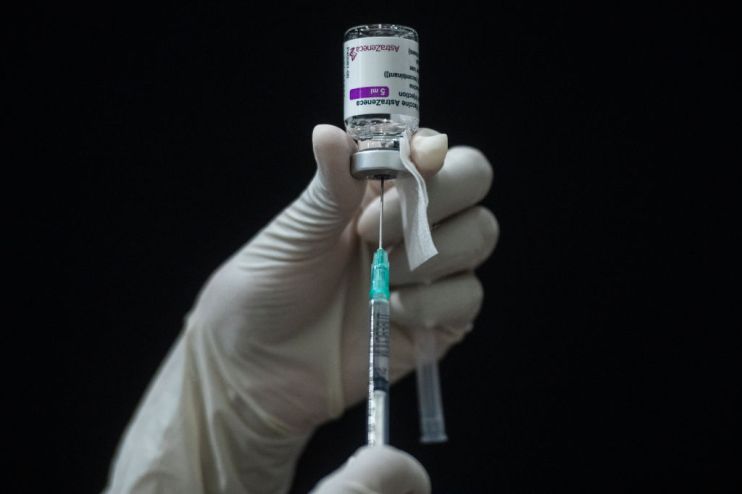
How are vaccine programmes progressing in emerging markets?

Some emerging markets will be vulnerable to renewed activity restrictions in the coming months. For investors, this will require careful monitoring.
The roll out of Covid-19 vaccines remains a conundrum facing investors in emerging markets (EM). As we noted late last year, few EM were proactive in securing sufficient supplies of effective vaccines. So they were always going to lag behind developed markets in the roll-out of shots and subsequent reopening of economies.
While some EM such as Chile and those in Central Eastern Europe (CEE) had secured decent supplies of shots, most had not.
Which emerging markets lead/lag in the vaccine roll out?
As the chart below shows, there is now a substantial difference in the proportion of populations that have received at least one dose of Covid vaccine across EM. So while Chile and the CEE countries have now vaccinated a decent proportion of their population, many have not.
Indeed, a combination of slow roll-out and vaccine scepticism means that vaccination rates remain stuck in single digits in many EM, including South Africa, South Korea and many other parts of Asia.

Most estimates have placed the threshold for herd immunity to Covid-19 at 60-70% of the population having protection; either after surviving exposure or through vaccination. A quick back-of-the-envelope calculation shows that, at current vaccination rates, some of these markets will not manage to deliver at least one shot to two-thirds of the population until late 2022 and beyond. Indeed, at current rates it would be several years until South Africa and Taiwan achieved the feat.
The pace of inoculation will probably speed up as more vaccines are approved. And there are signs that, having initially hoarded shots, some developed markets such as the US will now start to release stock. This should help to boost supply, albeit this is tempered by disruptions to exports of vaccines from India.
It should also be noted that some EM have built up significant natural immunity after suffering large waves of Covid outbreaks. That might dampen the reliance on vaccination in EM such as India, Mexico and South Africa.
However, for those EM that dealt with Covid through suppression, and therefore built up little natural immunity, vaccination is key to protecting the population. The slow pace of roll-out therefore leaves them vulnerable to new outbreaks and variants. This means that EM with low vaccination rates are at risk of periodic lockdowns that would disrupt economic activity. In addition, these economies may find it difficult to fully re-open to international business and tourism travel.
Discover more from Schroders:
- Learn: Why EM is the perfect place for impact investing
- Read: Blockbuster Chinese growth masks signs of a slowdown
- Listen: Podcast: The four “M”s: why the 21st century belongs to Asia
What does this mean for investors?
From the perspective of investors, this is important. Our analysis shows a clear correlation between the speed of vaccination and expectations for future economic growth. And this should have an impact on the performance of local financial markets.
There is some evidence that financial markets underperform in EM that suffer large outbreaks of Covid. For example, equities in Brazil started to underperform the rest of EM as it became apparent that a second wave of infections was underway, before starting to outperform as investors began to anticipate the peak in the outbreak.

This helps to explain the recent negative reaction in Taiwanese financial markets after the local outbreak of Covid in recent weeks. And it underlines the point that vulnerability to renewed activity restrictions is something that will continue to require careful monitoring across EM in the months ahead.
– For more visit Schroders insights and follow Schroders on twitter.
Topics:
Important Information: This communication is marketing material. The views and opinions contained herein are those of the author(s) on this page, and may not necessarily represent views expressed or reflected in other Schroders communications, strategies or funds. This material is intended to be for information purposes only and is not intended as promotional material in any respect. The material is not intended as an offer or solicitation for the purchase or sale of any financial instrument. It is not intended to provide and should not be relied on for accounting, legal or tax advice, or investment recommendations. Reliance should not be placed on the views and information in this document when taking individual investment and/or strategic decisions. Past performance is not a reliable indicator of future results. The value of an investment can go down as well as up and is not guaranteed. All investments involve risks including the risk of possible loss of principal. Information herein is believed to be reliable but Schroders does not warrant its completeness or accuracy. Some information quoted was obtained from external sources we consider to be reliable. No responsibility can be accepted for errors of fact obtained from third parties, and this data may change with market conditions. This does not exclude any duty or liability that Schroders has to its customers under any regulatory system. Regions/ sectors shown for illustrative purposes only and should not be viewed as a recommendation to buy/sell. The opinions in this material include some forecasted views. We believe we are basing our expectations and beliefs on reasonable assumptions within the bounds of what we currently know. However, there is no guarantee than any forecasts or opinions will be realised. These views and opinions may change. To the extent that you are in North America, this content is issued by Schroder Investment Management North America Inc., an indirect wholly owned subsidiary of Schroders plc and SEC registered adviser providing asset management products and services to clients in the US and Canada. For all other users, this content is issued by Schroder Investment Management Limited, 1 London Wall Place, London EC2Y 5AU. Registered No. 1893220 England. Authorised and regulated by the Financial Conduct Authority.